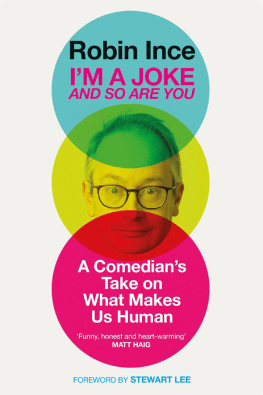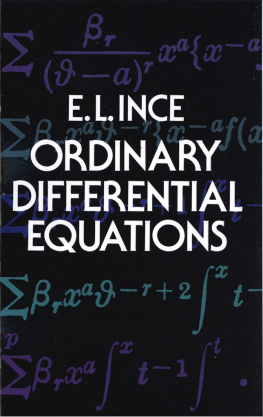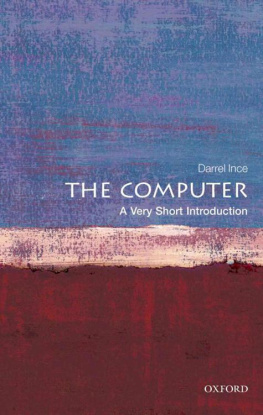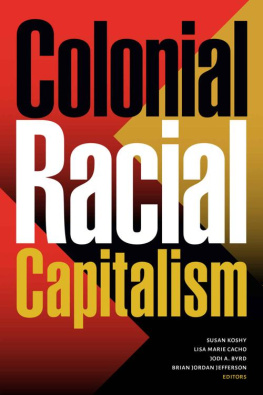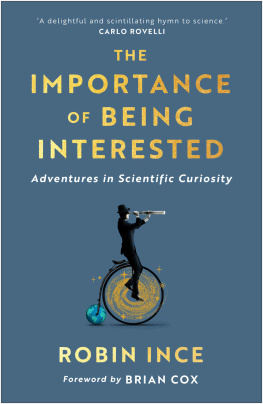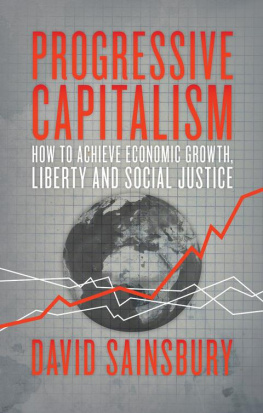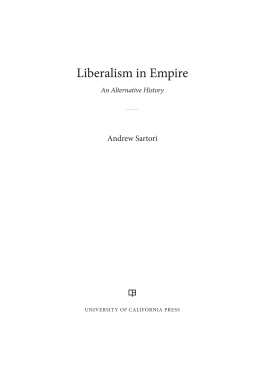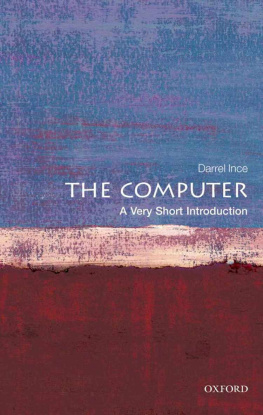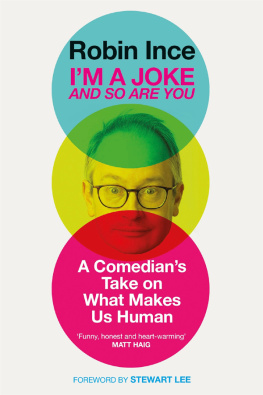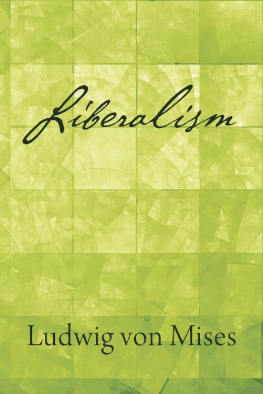Ince - Colonial Capitalism and the Dilemmas of Liberalism
Here you can read online Ince - Colonial Capitalism and the Dilemmas of Liberalism full text of the book (entire story) in english for free. Download pdf and epub, get meaning, cover and reviews about this ebook. year: 2018, publisher: Oxford University Press, genre: Politics. Description of the work, (preface) as well as reviews are available. Best literature library LitArk.com created for fans of good reading and offers a wide selection of genres:
Romance novel
Science fiction
Adventure
Detective
Science
History
Home and family
Prose
Art
Politics
Computer
Non-fiction
Religion
Business
Children
Humor
Choose a favorite category and find really read worthwhile books. Enjoy immersion in the world of imagination, feel the emotions of the characters or learn something new for yourself, make an fascinating discovery.

Colonial Capitalism and the Dilemmas of Liberalism: summary, description and annotation
We offer to read an annotation, description, summary or preface (depends on what the author of the book "Colonial Capitalism and the Dilemmas of Liberalism" wrote himself). If you haven't found the necessary information about the book — write in the comments, we will try to find it.
Ince: author's other books
Who wrote Colonial Capitalism and the Dilemmas of Liberalism? Find out the surname, the name of the author of the book and a list of all author's works by series.
Colonial Capitalism and the Dilemmas of Liberalism — read online for free the complete book (whole text) full work
Below is the text of the book, divided by pages. System saving the place of the last page read, allows you to conveniently read the book "Colonial Capitalism and the Dilemmas of Liberalism" online for free, without having to search again every time where you left off. Put a bookmark, and you can go to the page where you finished reading at any time.
Font size:
Interval:
Bookmark:
ONUR ULAS INCE


Oxford University Press is a department of the University of Oxford. It furthers the Universitys objective of excellence in research, scholarship, and education by publishing worldwide. Oxford is a registered trade mark of Oxford University Press in the UK and certain other countries.
Published in the United States of America by Oxford University Press
198 Madison Avenue, New York, NY 10016, United States of America.
Oxford University Press 2018
All rights reserved. No part of this publication may be reproduced, stored in a retrieval system, or transmitted, in any form or by any means, without the prior permission in writing of Oxford University Press, or as expressly permitted by law, by license, or under terms agreed with the appropriate reproduction rights organization. Inquiries concerning reproduction outside the scope of the above should be sent to the Rights Department, Oxford University Press, at the address above.
You must not circulate this work in any other form and you must impose this same condition on any acquirer.
CIP data is on file at the Library of Congress
ISBN 9780190637293
eISBN 9780190637316
To my parents, Hlya nce and Nedim nce.
Annem Hlya nce ve Babam Nedim nceye.
and
In memory of Isaac Kramnick mentor, friend, great oak.
It takes a village to write a book. I have incurred many debts over the ten years that it took to chisel an intuition into a question, an argument, and eventually a book. Of those debts, heavy are those owed to Susan Buck-Morss, Isaac Kramnick, Richard Bensel, Jason Frank, and Diane Rubenstein, mentors who evinced an exemplary combination of encouragement of unorthodox thinking and demand for scholarly rigor. I am grateful for the unwavering support and exacting standards of Jeanne Morefield, who, as a friend, interlocutor, and outstanding scholar of liberalism and empire, has read and commented on my written work more than anybody else. I hold the privilege of having Andrew Sartori, Siraj Ahmed, Aziz Rana, and William Clare Roberts read and commented on the entire manuscript. The argument of the book stands much clearer and sharper thanks to their extensive and trenchant criticisms. The remaining faults, of course, are mine.
I have found intellectual inspiration and a rare generosity of spirit in James Tully, Barbara Arneil, Karuna Mantena, and Daniel ONeillall pioneers in the study of political theory and empirewho provided feedback on various sections of the manuscript. Robert Nichols has been a kindred mind and an astute critic of my work in our shared endeavor of bringing the study of colonialism and capitalism within the fold of political theory. J. G. A. Pocock awed and humbled me by taking the time to read the monstrously long first draft of the chapter on E. G. Wakefield and mail me his comments. The chapter on Edmund Burke benefited greatly from Robert Traverss expert advice. Adom Getachew and Sayres Rudy have my thanks for their incisive commentary on the framing chapter of the book. My exchanges with Alex Gourevitch and Burke Hendrix on capitalism, primitive accumulation, and liberalism were a kind of intellectual calisthenics that kept my thinking in shape. I have to commend Murad Idriss professionalism in helping me to clarify the books stakes. Dear friend and indomitable critic Aya ubuku has my thanks for her relentless probing into the assumptions, commitments, and limits of the book as well as for her warm hospitality in Cambridge, Massachusetts. Long and intense conversations with Anthony Reed and Carl Gelderloos, extending into the early hours of many a morning, proved formative of my ideas in more ways that I can identify.
Some of the insights central to this project emerged from several institutional involvements during my time at Cornell University. Beyond the Department of Government, I found an intellectual home at the Institute for Comparative Modernities that invited a wealth of transdisciplinary and heterodox research. I will always be thankful to Barry Maxwell for pulling me into the institute as soon as it got off the ground and involving me with its lecture series, conferences, and reading groups. I was also fortunate enough to be part of the New Enclosures Research Working Group at Cornell, which pushed my research horizons beyond political theory and intellectual history, and gave me the opportunity to discuss parts of the project with James Scott, Silvia Federici, and George Caffentzis. Of the founding members of the Working Group, the formidable Charles Geisler has my special thanks and admiration. Harvard Law Schools Institute for Global Law and Policy provided an ecumenical venue for intellectual exchange with critical legal scholars on questions central to the project. I would like to thank Sundhya Pahuja, Zoran Oklopcic, and Matthew Craven for their close engagement with the first chapter of the manuscript at the 2013 workshop. I also found the chance to present the arguments of the book at the Cornell Political Theory Workshop, Politics of Land Conference at the University of Alberta, Law and History Workshop at Tel Aviv University, and the Institute for Global Law and Policy. The organizers and the audiences have my thanks.
It was a pleasure to work with David McBride at Oxford University Press. I heavily relied on the patient and able support of Emily Mackenzie and Janani Thiruvalluvar in preparing the manuscript for publication. Ginny Faber has my heartfelt thanks for the invisible yet invaluable labor of copyediting.
Elements of this book have appeared in previous journal articles. I am grateful to the editors of The Review of Politics, Polity , Cambridge University Press, and Springer for the permission to revise published material.
The greatest debt is due to my life companion, better half, and fellow scholar, Sinja Graf. From the inception to the conclusion of the book, which stretched over a decade, two intercontinental moves, three jobs, and plenty of rough patches, she has not lost her patience and acumen in listening to my reflections and reading every piece of writing that I have sent her way. My debt to her is one that I hope will keep accruing for the decades to come.
This book is dedicated to my parents, Hlya and Nedim Ince.
In his magnum opus of political economy, Adam Smith described the discovery of America and the circumnavigation of the Cape of Good Hope as the two greatest and most important events in the history of mankind. His estimation of the consequences of these oceanic expeditions, however, was less than sanguine.
By uniting, in some measure, the most distant parts of the world, by enabling them to relieve one anothers wants, to increase one anothers enjoyments, and to encourage one anothers industry, their general tendency would seem to be beneficial. To the natives, however, both of the East and West Indies, all the commercial benefits which can have resulted from those events have been sunk and lost in the dreadful misfortunes which they have occasioned.
In the brief span of a passage, Smith encapsulated a key contradiction of the global political economic order that had been taking shape since the sixteenth century. Smiths world was a world of transoceanic trade, an emergent international division of labor, and growing prosperity and social refinement in Europe. It was also a world of colonial empires replete with territorial conquest, demographic extirpation, and enslavement in the West, and militarized trading, commercial monopolies, and tribute extraction in the East. For Smith and his fellow Enlightenment thinkers, modern Europe had witnessed the birth of a historically unique form of human society, one that promised a new model of peace, opulence, and liberty. The same Europe also presided over a violent network of colonial economies that forcibly harnessed the West and the East into a world market. This paradoxa liberal, commercial society incubating in a world of illiberal, colonial empireswas at the root of Smiths ultimately ambivalent assessment of global commerce.
Font size:
Interval:
Bookmark:
Similar books «Colonial Capitalism and the Dilemmas of Liberalism»
Look at similar books to Colonial Capitalism and the Dilemmas of Liberalism. We have selected literature similar in name and meaning in the hope of providing readers with more options to find new, interesting, not yet read works.
Discussion, reviews of the book Colonial Capitalism and the Dilemmas of Liberalism and just readers' own opinions. Leave your comments, write what you think about the work, its meaning or the main characters. Specify what exactly you liked and what you didn't like, and why you think so.

